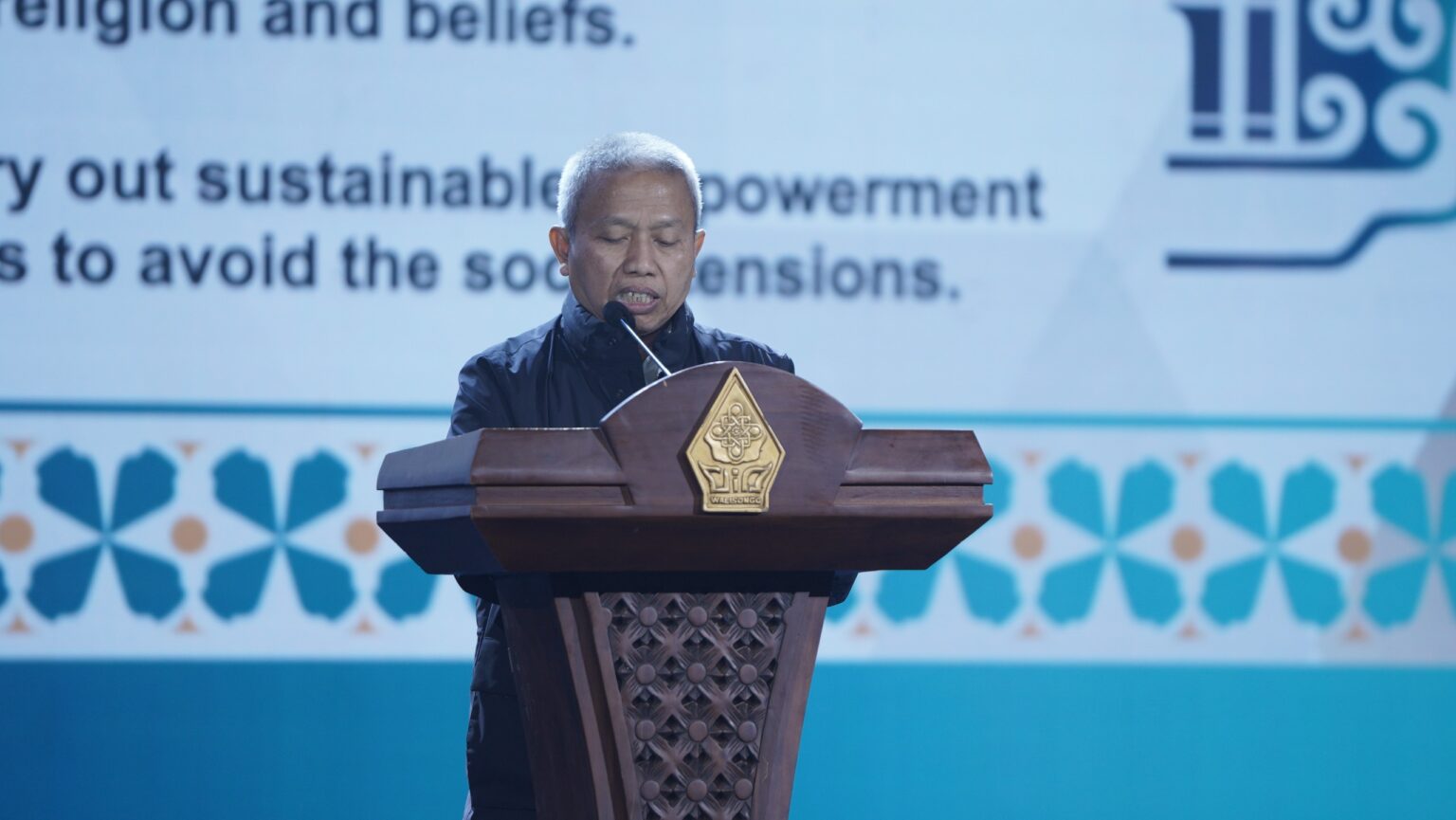SEMARANG, — The 23rd AICIS in 2024 produced the Semarang Charter which was read by Plt. Chancellor of UIN Walisongo, Prof. Dr. Nizar Ali, M.Ag at the 23rd AICIS Closing Ceremony in 2024 at the Padma Hotel, Semarang, Saturday evening (3/2/2024).
The following are the nine points of the Semarang Charter which have been confirmed at the 23rd AICIS in 2024.
- Religious beliefs, traditions and practices around the world are so rich, diverse and cannot be interpreted monolithically, that each one needs to recognize and respect this diversity as a source of strength and understanding in responding to humanitarian crises.
- In facing the recent humanitarian crisis, religious communities must work together to provide the best services for society to alleviate suffering, build solidarity, and create justice and equality.
- Religious teachings must be interpreted and applied in cool and moderate ways to protect the dignity of every individual, so advocacy is needed to maintain human rights and social justice in every element of human life.
- To avoid as few social, economic and even political conflicts as possible, religious leaders and institutions must be actively involved in dialogue between religions and beliefs, avoid religious sentiments, foster understanding and complete cooperation as a bridge of empathy between fellow human beings,
- Recognizing the inextricable relationship between religion, humanity and the environment, a commitment is needed to promote all sustainable practices that contribute to environmental management and the welfare of the planet and its inhabitants.
- Due to the recent massive crimes and brutality against fellow human beings, religious and belief communities are committed to real work in providing humanitarian assistance to those affected to alleviate their suffering and speed up their recovery regardless of their religion and beliefs.
- Communities of religions and beliefs are committed to carrying out sustainable empowerment and strengthening of society regardless of religion and belief in order to avoid the recurrence of conflict.
- To distance themselves from sentiments and provocations that can damage social relations between human beings, religious and belief communities need to promote the wise use of technology in order to avoid increasing conflict escalation.
- Leaders of religions and beliefs are committed to encouraging the formation of moral leadership that can foster trust in their respective communities and wider society.
Acting Chancellor of UIN Walisongo, Prof. Dr. Nizar Ali, M.Ag, who was asked to read the Semarang Charter, delivered it in Arabic and Indonesian.
The closing of the 23rd AICIS in 2024 was attended by a number of figures, including the Minister of Religion (Menag) Yaqut Cholil Qoumas, (Acting Governor of Central Java Nana Sudjana, Director General of Islamic Education of the Indonesian Ministry of Religion Muhammad Ali Ramdhani, as well as chancellors and professors from various universities high level of Islam in Indonesia.
